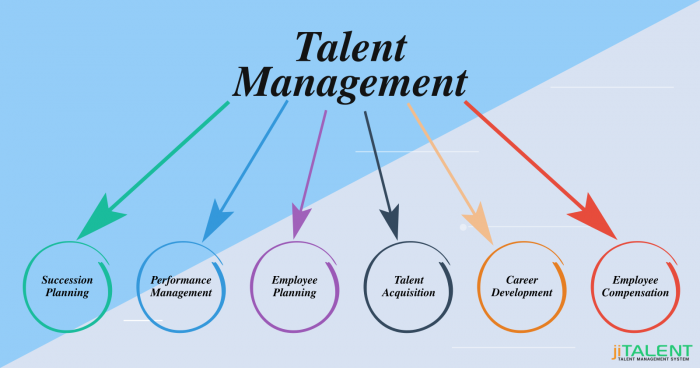Building a startup is an exciting adventure filled with opportunities and obstacles. One of the most crucial aspects of managing your startup's growth is effective Talent Management.
Keeping your top talent engaged and committed is essential for maintaining stability, encouraging innovation, and securing your company’s long-term success.
This blog will present practical strategies to improve talent retention in your startup firm.
Creating a Positive Workplace Culture
A positive workplace culture is the foundation of a strong talent management solution. Employees want to feel valued, respected, and part of a united team. To achieve this, you should encourage open communication, celebrate successes, and create an environment where everyone feels included and motivated.
Regular team-building activities are an excellent way to strengthen relationships and boost collaboration. These do not have to be elaborate—simple outings, team lunches, or collaborative projects can effectively develop team cohesion.
Moreover, startups are known for demanding schedules, but promoting work-life balance is crucial. Flexible working hours, remote work options, and respect for personal time can significantly improve employee satisfaction.
Providing Opportunities for Growth and Development
Employees are likelier to stay with a company that invests in their professional growth. Providing opportunities for learning and development shows that you value their career progression and are committed to their long-term success.
Recognize and Reward Contributions
Recognition and rewards are crucial components of effective Talent Management Acknowledging hard work and contributions not only boosts morale but also motivates employees to excel.
You can create a structured recognition program as part of your approach to managing talent. This could involve giving out Employee of the Month awards, recognizing individuals during meetings, or setting up a special platform to celebrate successes.

Regarding rewards, they do not always have to be monetary. Extra days off, professional development opportunities, or even simple thank-you notes can go a long way towards making employees feel appreciated.
Provide Competitive Compensation and Benefits
While money is not everything, competitive compensation and benefits are vital for successfully managing talent. Offering fair salaries and attractive benefits is essential for attracting and retaining top talent.
To manage your workforce efficiently, you must conduct regular salary reviews to keep your compensation packages in line with industry standards. Additionally, adjust salaries based on performance and inflation to ensure your employees remain satisfied and motivated.
Offering health insurance, retirement plans, and other benefits can significantly affect an employee's decision to stay with your company. It would help if you tailored your benefits package to meet the needs of your workforce.
Create a Supportive Onboarding Process
The onboarding process is a key element of effective talent management and sets the tone for a new employee's experience with your company. A smooth and supportive onboarding process helps new hires feel welcome and ready to make meaningful contributions from day one.
You must ensure new hires understand their roles and responsibilities, and how their work contributes to the company's goals. You should provide them with the resources and support they need to succeed.
You can also pair new employees with experienced mentors who can guide them through the initial stages of their journey. This support can help new hires feel more confident and integrated into the team.
Encourage feedback and act
Creating a feedback-rich environment is a crucial part of managing the workforce, ensuring that employees feel comfortable sharing their thoughts and suggestions. This approach is vital for continuous improvement and overall employee satisfaction.
You must regularly survey your employees to gauge their satisfaction and identify areas for improvement. You can use anonymous surveys to ensure honest feedback.
You must also show employees that their feedback matters by making tangible changes based on their suggestions. Communicate these changes to demonstrate your commitment to creating a better workplace.
Cultivate Leadership Skills
Strong leadership is a key element of effective talent management and is crucial for employee retention. Supportive, transparent, and approachable leaders can greatly influence employee satisfaction and develop long-term loyalty.
You can provide leadership training programs for managers and supervisors to enhance their skills in managing and motivating their teams. Whenever possible, promote employees to leadership positions from within the company. This practice shows that you value internal talent and provide career advancement opportunities for your staff.
Cultivate a Sense of Purpose
Employees are more likely to stay with a company that aligns with their values and offers a sense of purpose. To efficiently manage the talent within your organization, you should help employees understand how their work contributes to the bigger picture and supports the company’s mission.
You should regularly communicate the company's vision, mission, and goals to do this. You must also help employees see the impact of their work on the company's success and the community.
You can also allow employees to work on projects that they are passionate about. This practice boosts motivation and connects deeply to the company's mission.
Conclusion
To conclude, improving talent retention in your startup firm requires a multifaceted approach that includes creating a positive workplace culture, providing growth opportunities, recognizing and rewarding contributions, offering competitive compensation, supporting onboarding processes, encouraging feedback, cultivating leadership skills, and promoting a sense of purpose.
By implementing these strategies, you can create an environment where employees feel valued, motivated, and committed to your company's long-term success. Doing this will help keep your workforce content and equip you to retain them successfully. If you want to know more or wish to build your dream team, fill out this form: Intake Form - Startup Talent now.
A Comprehensive Guide to Hiring Remote Employees
Remote work has changed from being a trend to the backbone of many modern business operations. This transformation is accelerated by technological advancements and the global shift towards flexible work arrangements. Remote work presents unmatched opportunities for both employers and employees. This in-depth guide dives into the intricacies of hiring remote personnel.
Understanding Remote Work
Remote work refers to a work arrangement where employees do not commute to a central place of work but instead perform their tasks from various locations, often their homes or co-working spaces. This mode of work is facilitated by digital communication tools, cloud computing, and project management software, enabling seamless collaboration across distances.
The Need for Remote Work
Flexibility and Work-Life Balance: Remote work allows employees to better manage their schedules, leading to improved work-life balance and reduced stress levels.
Access to Global Talent: Employers can tap into a diverse talent pool without geographical limitations, enabling access to specialized skills and reducing hiring constraints.
Business Continuity: Remote work ensures operational continuity during unforeseen events such as natural disasters or health crises like the COVID pandemic.
Key Considerations for Hiring Remote Employees
Successfully integrating remote employees into your team requires careful planning and consideration. Here’s how:
1. Defining Roles and Responsibilities
Clear Job Descriptions: Craft detailed job descriptions specifying role expectations, required skills, and remote work compatibility.
Performance Metrics: Establish measurable performance metrics to assess remote employee productivity and success.
2. Adapting Recruitment Strategies
Virtual Interviews: Conduct thorough virtual interviews to assess candidates' communication skills, tech proficiency, and remote work experience.
Skill Assessment: Utilize online assessments and simulations to evaluate technical skills and problem-solving abilities.
3. Assessing Remote Readiness
Self-Motivation: It’s important to choose candidates who demonstrate self-discipline and accountability. They are the ones with the ability to thrive the most in a remote setting.
Communication Skills: Prioritize candidates who excel in written and verbal communication, essential for remote collaboration.
4. Implementing Remote Onboarding
Digital Onboarding Kits: Provide comprehensive digital onboarding kits with company policies, IT setup guides, and virtual team introductions.
Training and Support: Offer remote-specific training sessions and ongoing support to help new hires acclimate to remote workflows.
Overcoming Challenges in Remote Hiring
To break the communication barriers
Cultural Awareness: Foster inclusivity by promoting sensitivity to cultural differences among remote team members.
Technology Dependence: Ensure robust IT support and alternative communication channels to mitigate potential tech-related issues.
For building Team Cohesion
Virtual Team Building: Organize virtual activities and informal meetings to break the ice. The team should develop healthy workplace communication as this increases team spirit and prevents potential conflicts.
Clear Expectations: Establish transparent communication channels and set clear expectations to enhance collaboration.
To ensuring Compliance and Security
Legal Compliance: Understand labor laws, tax implications, and remote work regulations relevant to your remote team's location to ensure legal compliance.
















